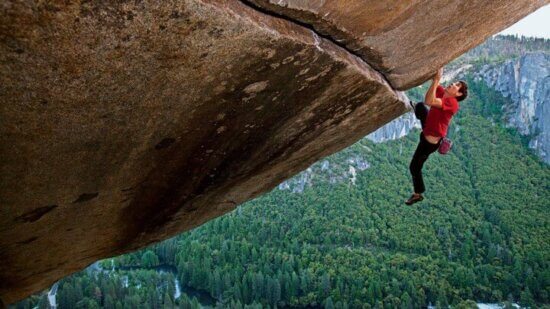
If you truly believe in and wish to have diversity in your organisation, actively seek out those who see things differently
HBR: Organizations are beginning to value neurodiversity.
Alex Honnold: That’s just a fancy manner of referring to people who see things slightly differently. Obviously, the more eyes you have on a problem, the more likely you are to find unique solutions.
From HBR interview: Life’s Work: An Interview with Alex Honnold
In the latest Harvard Business Review is an interview full of concise and simply stated learnings.
The interviewee is Alex Honnold, the feature of the breathtaking oscar-winning documentary “Free Solo” (trailer below), the story of him ascending the 3,000 foot El Capitan face in Yosemite without ropes or any safety measures. My nerves were shredded watching it, even though the massive plot spoiler is that, well, he made it and survived.
I loved his simple answer to the point made by HBR in the quote from the article above, which itself came from this interchange:
HBR: How do you decide which risks are worth taking?
Alex Honnold: The casual observer might think free soloing is all crazy and reckless. But you can’t have a long career unless you spend a tremendous amount of time thinking about risk and minimizing it to ensure your own safety. There’s a brief scene in Free Solo where an fMRI shows that the amygdala in my brain responds differently than a “normal” person’s to low levels of fear stimuli, and most viewers come away saying, “There’s something unique about his brain.” I find that slightly irritating, because I’ve spent 25 years conditioning myself to work in extreme conditions, so of course my brain is different—just as the brain of a monk who has spent years meditating or a taxi driver who has memorized all the streets of a city would be different.
We are all part nature, part nuture. We are part who we are naturally and part what we focus on, learn, grow into.
If I take a thought from the two core points Alex Honnold made above, then if you seek diversity in your organisation, seek both people from different backgrounds, then also look for those who have created very different areas of focus for themselves over the years outside the maintstream. They will see things differently both innately and through the way they have focussed their development and learning.
